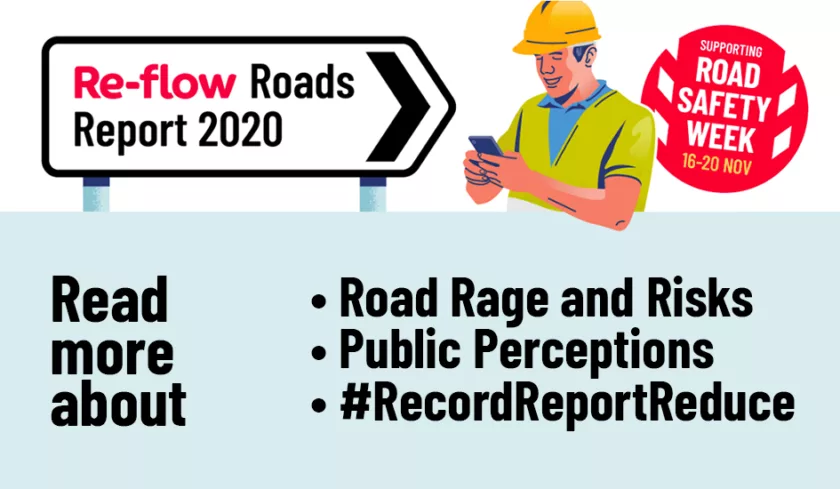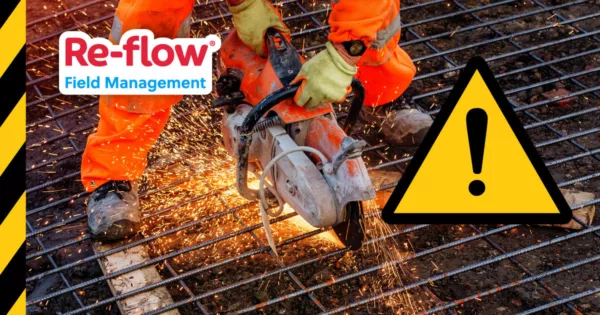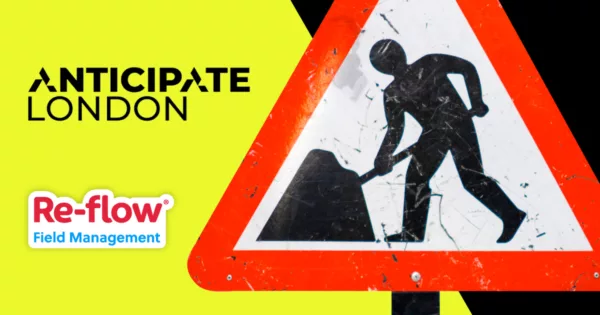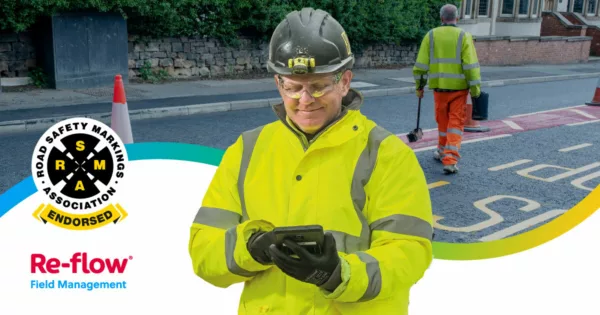
News
Re-flow Roads Report 2020
Re-flow Workflow Management Software is a supporter of the Uk's annual Road Safety Week. commissioned an independent UK-wide survey from YouGov to report on the public opinions of the UK roads infrastructure and attitudes towards roadworkers and roadworker safety in 2020. This report has been launched to coincide with and support this year's annual Road Safety Week (16-22 Nov) in the UK, organised by Brake's road safety charity.
Key Insights
Road Repairs
The report found that there is a significant issue in the number of people who think the state of repair of roads in the UK is in crisis. In 2020, 42% of the UK felt their roads were at a crisis point, with the worst road conditions reportedly being in the East of England at 50%.
Furthermore, almost 1 in 3 people across the country believe that the condition of our roads has reached the point of a national emergency, with those in the West Midlands most concerned about their infrastructure. Get the full statistics in our infographic below.
Incentivising Infrastructure
The pressure on our highways agencies and local councils to get on top of our backlog of road maintenance is extremely high, yet despite authorities devising new schemes to deliver the program of works more efficiently, public support for their efforts is proving elusive. Logical schemes that reward infrastructure companies for completing their work quickly and efficiently by giving them increased payments and chances of winning more work are only supported by 31% of the UK public in our YouGov poll, leaving little room for incentivisation that would help increase capacity, while also achieving broad public support.
All in all, this highlights a fundamental disconnect between the expectations of the public and the ability our sector has to be able to deliver – a real, if not impossible, challenge for the sector to meet.
The rate of repairs and maintenance is by no means a new issue for the sector, with year on year of reports highlighting the ever-growing backlog. The need for our road workers to address this situation has never been greater. Still, alongside dealing with a hefty backlog of works, there are increasing concerns about the safety of their working environments.
Roadworker Safety
One of the most worrying findings was that 5% of people in the UK have personally witnessed a motorist colliding with roadworks in 2019, highlighting the dangers still being faced by careless or dangerous driving.
There were two hotspots highlighted in the UK, the West Midlands and the North West of England, where the highest reported levels of incidents occurred last year. Get the full statistics in our infographic below.
Public Perceptions
Combining our YouGov research with our own direct research in the highways community, we have found a significant disconnect in the perception of safety for highways workers between the general population and those who work in the highways sectors. When asked if enough is done to keep roadworkers safe, only 17% of highways workers agreed, compared with 84% of the UK public. The level of presumption that enough safety measures are in place, could result in complacency that compromises safety.
Road Rage
The live working environments for roadworkers promote an emotional response from people when they are navigating through them, and the dominant feeling, with 1 in 3 people feeling this, was frustration. Once again, frustrated drivers are more likely to disregard the safety of the roadworkers and make errors in their driving. Efforts to reduce the feelings of frustration could be a solid way of managing the number of incidents of dangerous driving, or another issue that road workers face, in physical and verbal abuse from members of the public.
Roadworker Abuse
Another worrying finding in the report was in the number of people who had personally witnessed another person be physically or verbally abusive towards a road worker. Of the UK nations, Wales topped the list with 5% of survey respondents witnessing an incident, Northern Ireland at 4%, Scotland at 3% and England at 2%.
Summary
With the findings of the YouGov research survey, our own research and stories we had shared confidentially with us, Re-flow also found out that our software had been used to help the immediate recording and reporting of incidents of roadworker abuse and dangerous roadworks incursions. To support our clients in the highways sector, throughout 2020, we have been promoting our #RecordReportReduce feature, that enables Re-flow app users to immediately record the incident, report it to a line manager and implement additional safety measure to reduce the chance of a similar incident reoccurring.

Be confident you're fully supporting your remote workers? Call today to talk with our software specialists or book a live demo.





